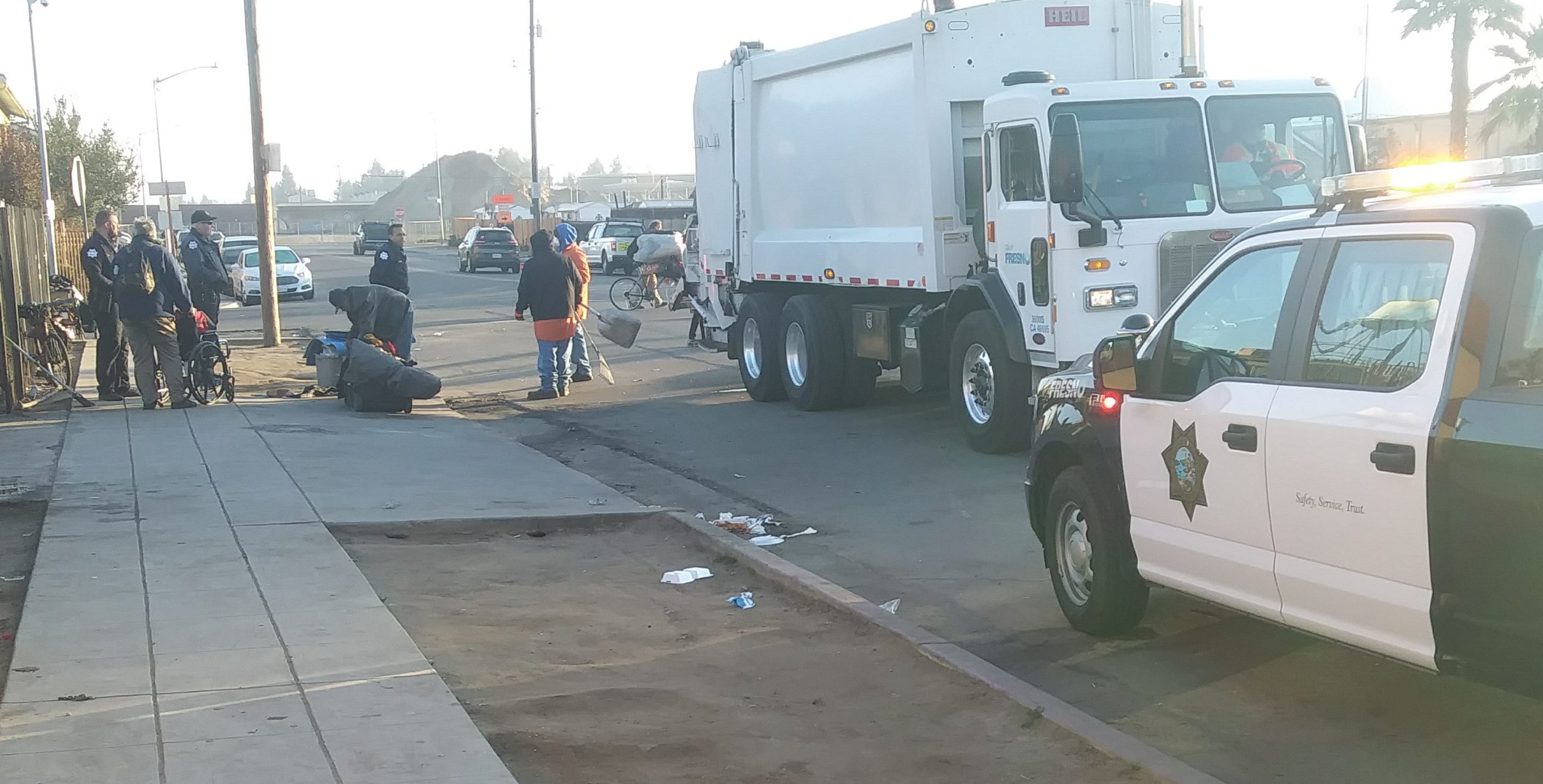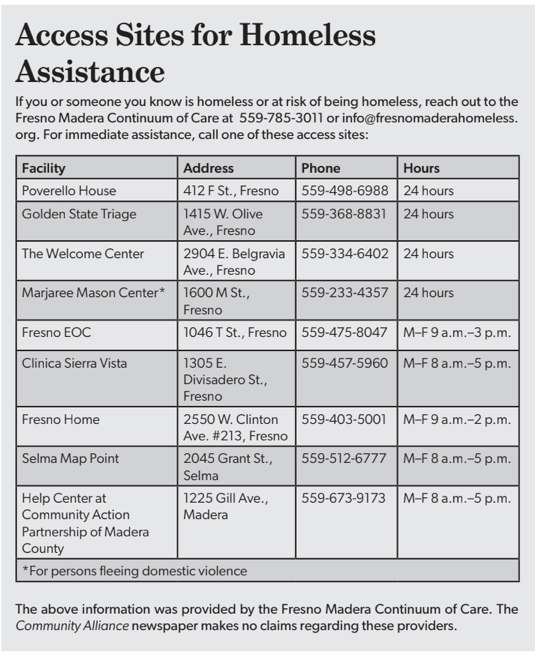

Fresno’s mayor and City Council have coined the term One Fresno even though, according to a 2019 Urban Institute report, Fresno ranks No. 59 of 59 cities in California for economic inclusion and racial inclusion, making it a very divided city.
Across the United States, Fresno ranks 253rd out of 274 cities on overall inclusion. It ranks 263rd on economic inclusion. Inclusion is defined by looking at income differences in poverty and wages by race and ethnicity, the number of working poor people, disparities in homeownership and the number of families that spend more than 35% of their income on rent.
Throughout Fresno County, many people remain jobless (the unemployment rate was 10% in December), underemployed or underpaid. Opportunities for gainful employment are limited for Black people, Latino people and immigrants. Opportunities are limited for those who lack higher education, grew up in poverty, live in poverty areas or were formerly incarcerated.
The lack of economic inclusion, low rental vacancy rates and increases in rent have led to a significant increase in the number of unhoused people in the region. Currently, rental vacancy rates are around 4%. Rents have increased 10.8% in the past year.
The median monthly rent for all types of rental units in Fresno is estimated at $1,390. Before the pandemic in 2019, the median rent was $1,045. Average rents have grown more than 35% in the last five years. According to the California Housing Partnership, Fresno County is short of more than 36,000 affordable housing units.
One popular explanation for homelessness is that personal attributes are the main reason why people are unhoused. Although substance abuse, poverty, mental illness, discrimination, domestic abuse, unemployment and other institutional and personal factors increase the risk for becoming homeless, extensive research shows that structural issues are the main cause.
The research shows that homelessness is not a result of individual failures. Rather, it is the structure of the housing market that drives homelessness and the affordable housing crisis. Being short 36,000 affordable housing units in the region is the primary cause, and throwing millions of dollars into temporary shelters, transitional housing and inadequate services will never be a solution.
The city and county should do the research and development of modular homes, container homes, tiny homes and other lower-cost development. Using a lower-cost development strategy and a Housing First model is the only answer to an increasing crisis. De-criminalizing the unhoused and recognizing that housing is a basic human right should be our priority.
Until more housing is built, can we, the people of Fresno, show some compassion? Can we lobby the mayor, the City Council members and the Board of Supervisors to use a small amount of the millions of dollars they have received from the state and federal governments on basic services? Services such as water, basic sanitation facilities, healthcare access, harm reduction services and other social services.
Can we demand an end to the sweeps, an end to the destruction of property, an end to the constant harassment and other abuses by the Fresno Police Department HART (Homeless Assistance Response Team) officers? Instead of calling 311 to complain about unhoused folks, why don’t you, the good citizens of Fresno, call 311 to complain about the continued abuse by the Fresno Police Department?
Stand up for the unhoused members of our community. If you don’t stand for something, you will fall for anything.
Access Sites for Homeless Assistance
If you or someone you know is homeless or at risk of being homeless, reach out to the Fresno Madera Continuum of Care at 559-785-3011 or info@fresnomaderahomeless.org. For immediate assistance, call one of these access sites:

